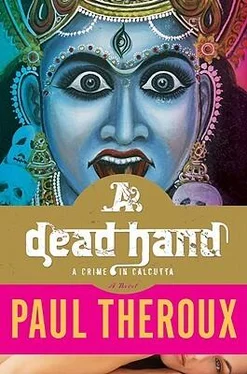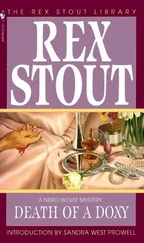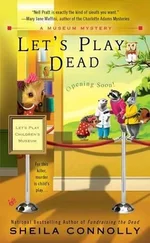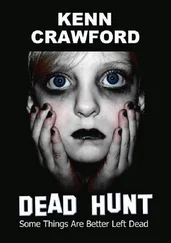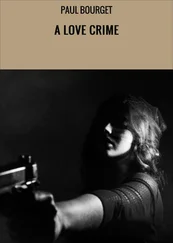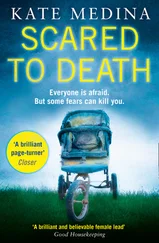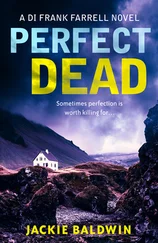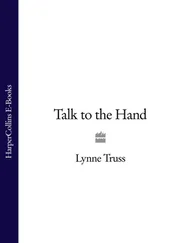"It would be much easier if you didn't say anything." She was rocking forward as the coach rocked, the train turning by a wide river. And then her face trembled as we banged over an iron bridge. "It's not a long story."
"You don't have to tell me."
"Just listen," she said in a mother's firm tone. "I was born in Georgia. I won't tell you where; you've never heard of it. I was one of seven children. I wish you could have seen us together. There weren't two of us who looked alike. I was second oldest. The eldest, my brother Ike, was quite dark and had black features. Then there was me. Number three had tightly curled reddish hair. Number four was pale, with dark hair. And so on.
"My grandmother was black, my mother — her daughter — was dark. My father was white. But never mind all these distinctions. We were a black family living in a black township, and all of us kids went to a black school. Everyone knew our pedigree — it's the country way. Georgia was still segregated then, and I hated it. I'll spare you the details.
"I wanted to go to college up north, to get away from all this. So after high school I applied to a college in Boston. My local church arranged for me to stay with a family in the Roxbury area. They ran a sort of boarding house. A few days after I arrived, the woman of the house said to me, 'You think you're better than we are, white-looking and uppity, but you're nothing but a little black girl just like us. Just like us — and don't you forget it.'
"I thought to myself: Did I come all the way from Georgia to end up in a segregated part of Boston, in the same sort of place I just left? I stayed for one semester and then went to New York City. It wasn't easy, but it's a big city and I just disappeared there, as people do. And the barriers weren't so rigid.
"I didn't want to live among black people, who seemed to resent me. I wanted to pass for a white person. I didn't want black baggage, and I didn't want my family bringing me down. I lived alone. I finished my degree, and on the way I met a lovely man and married him. He'd been married before — was a widower — and he had a small son. That was fine with me, because I knew I didn't want any children of my own.
"Harold died. The boy, Chalmers, became more my companion than my son. Then I married Ralph Unger, the Anglo-American — the late, unlamented Ralph. He resented Charlie. You can see how fond Charlie is of me. I think I've done a good job. I was left a lot of money, and I realized how lucky I'd been. I resolved never to marry again and to use the money in the best possible way. Well, you've seen what I've done at the Lodge."
In the course of speaking she'd turned away from me toward the window, where night had fallen and only pinpricks of light flashed, lanterns in those bamboo huts or stammers of flame from cooking fires. She'd spoken without much emphasis, almost without emotion, a statement rather than a confession.
"So now you know my secret."
I thought of myself as unshockable, yet when she'd finished her story I was speechless. As with a real shock, I had no questions, no answers either, only a dumb gaping funk in the half-light of the railway compartment, and my unvoiced self-recrimination: I thought I'd heard everything, and now this. I didn't doubt her, I doubted myself.
Also (even worse), that accompanying doubt in which, with one shattering revelation, the whole logical and obvious world becomes deceptive — suddenly, nothing was what it seemed. A lot of people would subscribe to that cliché. I certainly did, only half believing it. But presented with the evidence, I could only sigh. I felt like a fool, as though in a shell game she'd shown me a pearl under a cup and moved the cup among two others while I watched, and lifted it, and the pearl was gone — and she lifted another cup, and there was the pearl, but a new one, black and more beautiful. And I hadn't a clue.
"I know you wouldn't lie to me," I said. "But I don't see it."
"If only you could see my mother or my brothers," she said almost wistfully.
"I just see you."
"I'm like them."
I could not imagine her in any other way. I could neither recast her as black nor find any feature that was different from my own.
"Anyway, now you know why I was so moved by that woman at Howrah station. That man in a sari. That's how I feel most of the time. Like an impostor."
"I'm glad you told me."
"I can see that you're shocked."
"No," I said, and wondered how convincing I sounded. "I'm happy. You trust me with the truth. I want to show you that I'm worthy of that trust."
A knock at the door — the conductor to punch our tickets, the meal seller behind him with boxes of food. Mrs. Unger dealt with them, speaking Bengali. After they'd gone, she took out the food she'd brought in tiffin tins, a cylinder of stacked containers, rice and dahl and vegetables and yogurt. Eating off trays on our laps was the mundane ritual I needed to bring me back to reality, though we ate mostly in silence.
"I'm glad I'm here," I said afterward.
"Good. There's lots of things I need you to do. Lots of ways to help. Now it's bedtime, but there's only room for one person on these berths. Let's turn in. We'll be in Gauhati at seven. We'll talk then."
She called the sleeping-car attendant — barefoot, wild hair, popeyed, hungry for baksheesh — and he unrolled the bedding and made our beds. He got his tip, and after he'd gone, I kissed her lightly on the cheek. I thought I would agonize all night. But rocked by the train I slept and dreamed of her.

"BODOLAND," SHE SAID, looking up as the train, going rap-rap-rap , raced past an embankment of palm trees, banana groves, more bamboo huts, and women washing clothes in a creek, four of them, side by side.
I remembered what she'd told me, and I felt somehow like a conspirator. But because of it I had never felt closer to her. Taking me into her confidence, she had made me feel that I mattered to her. She never used the word "love," but I felt nothing but love for her. It was always bhoga for her, the intense sexual pleasure of the tantric massage.
I said, "I'd do anything for you."
She kept her gaze at the window. "Bodoland looks so peaceful. Look at those lily ponds and the children playing. You'd never know that Bodos have a liberation front. That these smiling people commit murder, blow up bombs. That they have the true pedigree — they are aristocrats. That they're angry."
"I didn't know. How would I? They look content."
"People write about landscapes like this and because they're so far from home they feel they have to make it pretty. Look, it's not pretty at all. It's not ugly. It's a great featureless emptiness, an awfulness of trapped people and peasant misery. You gape at it. It gapes back at you."
She was drinking a cup of tea, smiling out the window as I lay in my berth.
"Who would want to possess it or blow it up? Who could possibly care that much? Yet they do, in their multitudes." She was still smiling. "It's not the weirdness of humanity. It's the weirdness of the Indian personality. And the way people write about them. The travel books! The novels!"
Hearing this, I thought back to the garden of the Fairlawn and winced at recalling how I had been subjected to the scrutiny of that flitting, pitiless man.
"There isn't a single truthful book about India. There are long-winded family romances. And whimsical novels. And the experimental junk. India reveals itself, but no one looks closely. It's a culture of evasions. This country is very dirty. It's impossible to tell the truth here. The truth is forbidden, especially in writing. Anyway, a truthful book about India would be unbearable — about spite, venom, cruelty, sexual repression, incest, and meaningless crimes."
Читать дальше
